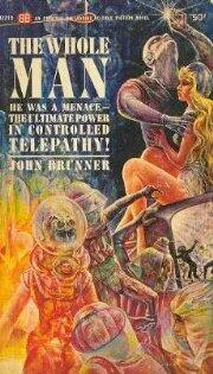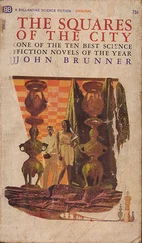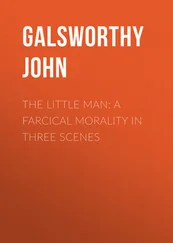Surprise died the instant it took shape in Singh’s mind. He chuckled and moved to a chair. Ilse Kronstadt leaned her elbow on the back of her own chair and cupped her sharp chin in her palm.
“You’re worried, Pan,” she said in an abrupt reversion to a serious tone. “It’s been making the place gloomy for days. Most of it’s because of this novice Danny picked up — poor guy! — but this morning I noticed I’d got fouled up in it, so I thought I’d have a chat. I hope you appreciate my waiting till you weren’t engaged.”
“Did you really need to send for me. Ilse?” Singh spoke the words because he knew the thought had emerged too forcibly into consciousness to disguise it anyhow.
“Yes, Pan.” The words dropped like stones. “It’s getting worse. I need to economize on the use of my telepathy now; I tire quickly, and I get confused. It makes me feel very old.”
There was silence. Not looking at him, she went on at last.
“You know — I’d have liked to marry, have children… I think I’d have tried it, in spite of everything, if I hadn’t seen from the inside what hell it is to be a non-telepathist child of telepathists. Remember Nola Grüning ?”
“I do,” Singh muttered. Nola Grüning had married — a telepathist, naturally; it was the only sane course — and had a child which didn’t inherit. And she had wound up in a catapathic grouping of children, her fantasies bright nursery images, from which Ilse had had to detach the reflective personalities one by one, leaving Nola hopelessly insane.
“So—!” Ilse said with forced brightness. “So the autobiography. I can leave words behind, at least. Now tell me what it was that brought me into the pattern of your worry.”
Singh didn’t trouble to speak — he merely marshaled the facts in his mind for her to inspect.
She sighed. “You’re right, of course, Pan. I couldn’t face a situation that complex — not any more. It would break me into little pieces. It’s the frustration, you see. You tackle the big problem, and it leaves unsolved scores, maybe thousands of small problems, and every single one hurts… I used to be able to resign myself. I — I’ve been forced to resign now, period.”
She moved as though shrugging off a bad dream. “Still, people have gone blind, people have gone crazy, since the dawn of history. I’m still human, after all! Is Danny getting anywhere with his novice, by the way?’
“Not yet. That’s why I’ve been radiating worry, of course.”
“What a damned shame! Sometimes I think I was unbelievably lucky in spite of everything, Pan. At least I had intelligent parents, a healthy childhood, first-rate education… Assuming the late appearance of the gift — never before seventeen, most often at twenty or over — is a kind of natural insurance against it destroying an immature personality, I reckon I was just about as well equipped as I could have been. But he’s a real mess, isn’t he? Orphaned, crippled, hemophiliac…”
“Have you any ideas that would help Danny?” Singh ventured.
“You’re late, Pan!” She gave a harsh laugh. “Danny asked me a week ago if I could help.”
“And can you?”
Her face went blank, as if a light behind it had been turned off. Stonily she said, “I daren’t, Pan. I’ve touched the fringes of his mind. I sheered off. In the old days I might have risked it — I’d have banked on my experience outweighing the naked power he possesses. I could have insured against him panicking. I’m too old to cope with him now, Pan — and too sick.”
“What’s going to become of him, then? Are we likely to lose him?” Singh spoke thickly.
“I can’t reach deep enough into his personality to tell you. Obviously, he has empathy waiting to be tapped — if it is, he’ll be my successor. You realize that, I hope? If it isn’t, he may hate himself into insanity. What we could do to tip the balance I just don’t .know, Pan! I tell you: I daren’t look so far into his mind!”
There came a time not long afterwards when they started to leave Howson alone, and — as he was honest enough to admit when he took a firm grip on himself — that too became a source of resentment. The way he analyzed his feelings, his desire to be treated as important was still active in his subconscious; his mood of stubborn resistance to Singh’s pleading, Waldemar’s telepathic persuasion, was satisfying in a back-to-front fashion because it was a means of ensuring the continuation of their interest. Once he had yielded and begun to co-operate, most of his training would be done by himself. Another telepathist could only guide him away from blind alleys. Each was unique, and each had to teach himself.
Of course, that was only half of it. The other half looked at him out of the mirror.
So much was easy to understand. Other things puzzled him a little. The rather gingerly way in which Waldemar approached a contact with him was mystifying for a long while after his arrival in Ulan Bator; one day, however, Waldemar’s control over the explanation slipped, and the reason emerged into plain view. He was afraid that Howson might become insane, and the possibility of an insane telepathist with Howson’s power was bleakly fearful.
More appalling still was the discovery Howson made after the seed had germinated in his own mind: the idea of escape into madness had a horrid fascination, offering a chance to exercise unbridled power without the restraint imposed by causing suffering which he would in turn experience — as he had experienced the pain of the men in the crashed helicopter.
Before the incident which distracted everybody’s attention from him, he had allowed himself to be shown over the hospital, and had found it sufficiently interesting to want to limp down the corridors by himself occasionally, unchallenged by the staff who had received instructions from Singh never to interfere with him. He had felt recurrent pangs of envy, though, each time he considered a patient on the way to recovery, whether from a mental or a physical illness, and now he preferred to sit brooding in his room, letting his mind rove. That, he could not resist; as he had learned when the gift first made its appearance, there was no way to close it off as simple as shutting one’s eyes.
When he opened up to maximum sensitivity, the hospital, and the city beyond, became a chaos of nonsense. He was developing his powers of selection, though, and proving for himself what he found he had subconsciously assumed: accuracy was a function not so much of range as of extraneous mental “noise’, and careful concentration would enable him to pick a single mind out of thousands in the same way one can follow a single speaker amid the hubbub of a lively party.
Some-personalities were very easy to pick out; they bloomed like fireballs against a black sky. The staff telepathists were naturally the easiest of all, but he was reluctant to make contact with them — he sensed a basic friendliness when he did so, yet it was discolored because to them it seemed so obvious that any telepathist would want the gift he had received, and there were puzzled and upset by Howson’s depression.
In any case, all but one of them were preoccupied with their work. The exception was the possessor of a mind that lit the whole of one wing of the hospital with an invisible radiance so bright it shielded the personality behind it. He had probed around the fringes of that radiance, and sensed an aura of confident power that gave him pause; then, unexpectedly, there had been a disturbance in the personality, and the aura darkened and almost faded away. If one could imagine a star overcome by weariness, one might comprehend what had happened. Howson found it beyond him; he preferred to turn his attention elsewhere.
Читать дальше












